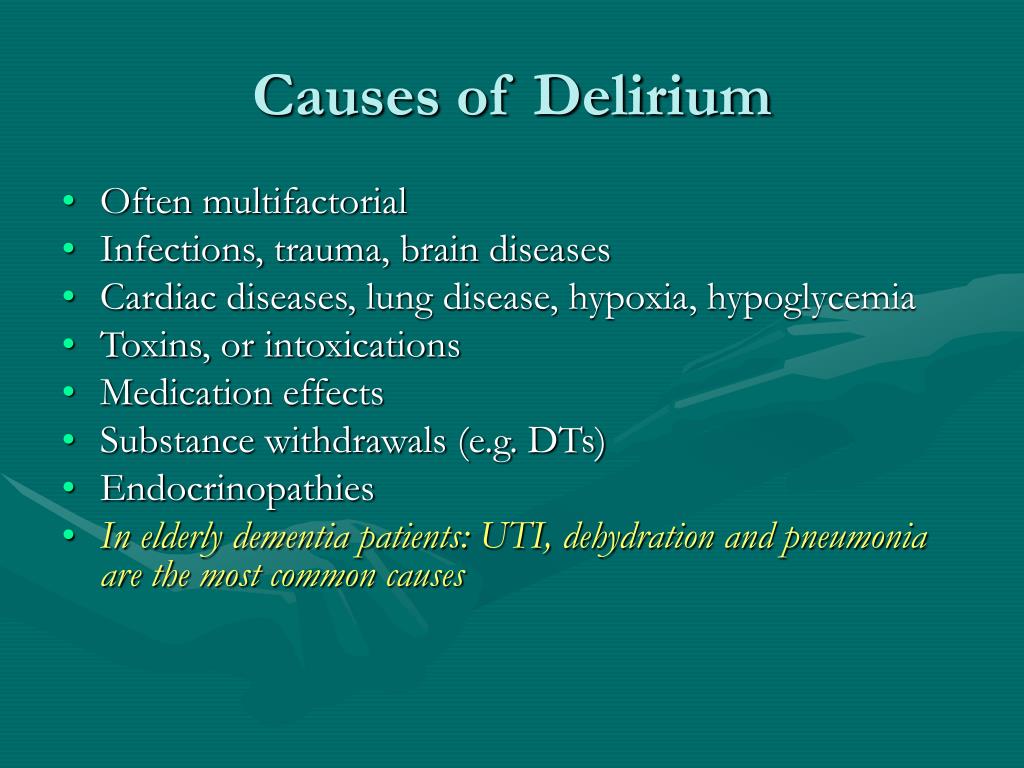What Causes Delirium In Alzheimer's Patients
Delirium and dementia are two serious medical conditions that have a significant impact on the lives of millions of older adults around the world, particularly in Asia. These conditions can lead to significant cognitive decline, memory loss, and confusion, creating a significant burden on both the patients and their caretakers. Early detection and treatment of delirium and dementia are crucial not only for the patient's quality of life but also for their overall health.
Causes of Delirium

Delirium is often caused by a range of medical conditions, including infections, trauma, and drug interactions. In some cases, delirium is caused by a combination of these factors. Common causes of delirium in older adults include severe pain, dehydration, infections, and metabolic imbalances.
The condition can also be brought on by a range of medications, including antihistamines, sleeping pills, and drugs used to treat high blood pressure. These medications can cause a range of side effects, including confusion and memory loss.
Types of Delirium
There are three primary types of delirium:
- Hypoactive delirium
- Hyperactive delirium
- Mixed delirium
Hypoactive delirium is the most common type and is characterized by minimal motor activity, lethargy, and inactivity. Hyperactive delirium, on the other hand, is characterized by hyperactivity, restlessness, and aggression. Mixed delirium is a combination of both hyper and hypoactive delirium and is the most severe and complex type.
Causes of Dementia
Dementia is a term used to describe a range of symptoms associated with a decline in cognitive function. While Alzheimer's disease is the most common cause of dementia, several other conditions can lead to dementia, including:
- Vascular dementia
- Lewy body dementia
- Frontotemporal dementia
- Creutzfeldt-Jakob disease
- Parkinson's disease
- Dementia with Lewy bodies
The symptoms and progression of dementia depend on the underlying cause. Alzheimer's disease, for example, typically begins with mild memory loss and progresses to more severe cognitive decline. Other forms of dementia may progress more or less rapidly, depending on the cause.
Treatment for Delirium and Dementia
The treatment for delirium and dementia varies depending on the underlying cause of the condition. For delirium, identifying and treating the underlying medical condition that is causing the delirium is crucial for recovery. For example, treating an infection, correcting dehydration, or adjusting medications can often help alleviate delirium symptoms.
For dementia, there is no known cure. However, treatments are available that may slow the progression of the disease and improve quality of life. These treatments may include medication, counseling, and lifestyle changes. Support and care for patients with dementia is essential and can help them maintain a good quality of life.
Conclusion
Delirium and dementia are serious medical conditions that affect millions of people around the world, particularly in Asia. Identifying the underlying causes of these conditions is crucial for treatment and management. While there is no known cure for dementia, treatments are available that can help slow the progression of the disease and improve the quality of life for patients.
For patients with delirium, early intervention and treatment of underlying medical conditions are essential for recovery. These conditions can be life-threatening, so immediate medical attention is essential to ensure the best possible outcome. While it's not always possible to prevent delirium and dementia, there are steps individuals can take to reduce their risk. These may include eating a healthy diet, staying physically active, and maintaining a healthy weight.